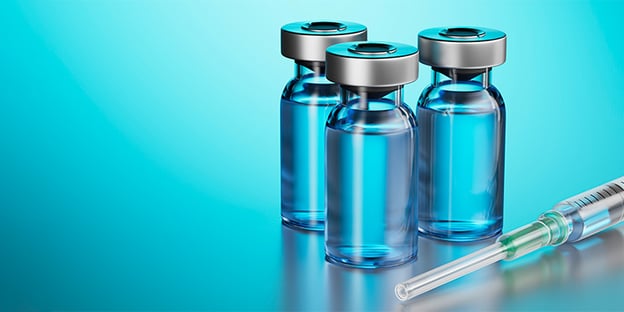Whether you’re managing your own diabetes or helping a loved one, you know there’s a lot more to it than just watching your diet and exercising — it involves staying aware of your body and recognizing the subtle signs that something might be wrong.
But some factors you might not even consider can make diabetes even worse … or even increase the risk of developing it in the first place.
In this post, we’ll explore the common health factors, medications, and other situations that can exacerbate diabetes, so you know what to watch for and how to talk with your healthcare provider.
Health Conditions That Can Worsen Diabetes

When you’re sick, your blood sugar is likely to rise, especially if you’re dealing with infections or chronic conditions like stress. Some common illnesses and health issues that can increase your blood sugar and worsen your diabetes include:
- Colds and infections
- Flu and respiratory illnesses
- Chronic stress or anxiety
- Lack of sleep
- Frequent dehydration
- Obesity or being overweight
- Monitor your blood sugar more closely when you’re sick, as illnesses can trigger spikes.
- Stay hydrated, especially during illness, to prevent blood sugar from rising.
Medications That Can Cause or Worsen Diabetes
Certain medications can raise blood sugar levels, even if they’re necessary for treating other conditions. These include:
- Steroids: Steroids like prednisone and dexamethasone increase insulin resistance, making it harder for your body to regulate glucose.
- Some antidepressants: Certain types of antidepressants, like amitriptyline and serotonin reuptake inhibitors (SSRIs), can influence blood sugar levels, leading to both hyperglycemia and hypoglycemia, depending on the individual and the dosage.
- Certain heart medications: Some medications used to treat heart conditions, like beta-blockers and diuretics, can also affect blood sugar. Beta-blockers (like metoprolol) may mask the symptoms of hypoglycemia, making it harder for people with diabetes to recognize when their blood sugar is too low. Diuretics (like hydrochlorothiazide), which help reduce blood pressure, can raise blood sugar by reducing the amount of insulin your body releases or by causing insulin resistance.
If you’re prescribed one of these medications, you might need to adjust your insulin doses or monitor your blood sugar more frequently. It’s always important to keep a close eye on how your body responds when taking new medications and inform your doctor of all your medical conditions before being prescribed any new medications.
 What Else Affects Your Blood Sugar?
What Else Affects Your Blood Sugar?
Because your blood glucose levels have such a ripple effect on the rest of your health, it’s important to know what can affect those levels and knock you out of a healthy range.
As it turns out, a LOT of things can make it harder to keep your glucose levels in check, and it’s not just what you eat. According to Diatribe.org, there are at least 42 things that can affect your blood sugar, including:
- What times you eat: Meal timing can influence how your body processes glucose.
- How much caffeine you drink: Caffeine can spike blood sugar in some people.
- Alcohol consumption: Alcohol can cause both blood sugar spikes and drops.
- Dehydration: Less water in your system can lead to higher glucose concentrations.
- Steroids: Medications like prednisone increase blood sugar.
- Vitamin B12: Deficiency in B12, especially in those taking Metformin, can worsen symptoms.
- Medication dosage and timing: Missed doses or improper timing can cause fluctuations.
- Stress: Emotional or physical stress can trigger glucose spikes.
- Illness: Infections and sickness put extra strain on your body, increasing blood sugar.
- Lack of sleep: Sleep deprivation can reduce insulin sensitivity.
- Allergies: Reactions and medications for allergies can impact blood sugar.
- Menstruation: Hormonal changes during menstruation can cause fluctuations.
- Puberty: Growth spurts during puberty affect insulin sensitivity.
- Smoking: Nicotine can make it harder for insulin to work properly.
- When you take insulin: Timing of insulin doses is crucial to effective glucose management.
- Exercise: Both too much and too little physical activity affect blood sugar levels.
- Outside temperature: Extreme heat or cold can impact how insulin works.
- Sunburn: Your body’s stress response to sunburn can raise blood sugar.
- Altitude: Changes in altitude can affect blood sugar levels.
To keep things in check:
- Stay hydrated throughout the day to prevent dehydration from concentrating glucose in your bloodstream.
- Protect your skin from sunburn, which can trigger stress responses that elevate blood sugar.
- Monitor sleep habits and ensure you get enough rest, as this can improve insulin sensitivity.
Diabetes Symptoms That Are Easy to Miss
If you already have diabetes, you might be used to monitoring your symptoms and already know what to watch for.
However, if someone is non-diabetic or pre-diabetic, they may not realize that a change in their lifestyle or medications has tipped them over the edge into full-blown diabetes, and they may miss these very common, but subtle, symptoms:
- Fatigue
- Thirst
- Irritability
- Dry mouth
Why are these symptoms often missed? People tend to blame work stress, long hours, or simple dehydration.
If your glucose levels were under control before and you now find yourself constantly thirsty or tired, or experiencing frequent urination, it might not just be that coffee habit; it may be a sign that you’re in the danger zone:
"Once you feel those symptoms, it’s time to get tested. You can’t keep ignoring them and chalking it up to being busy or tired."
— Laura Hooks, Diabetes Support Specialist, TMS
This is especially important if you have risk factors for diabetes, such as:
- Family history of diabetes
- Being overweight or obese
- High blood pressure
If you recognize any of these signs and have the risk factors, talk to your healthcare provider about getting tested for diabetes.
It’s easy to dismiss signs like thirst, fatigue, or irritability as part of a busy life, but if you have risk factors for diabetes, these could be warning signs. And if you’re already living with diabetes, it’s important to understand how your diabetes can be affected by factors like lifestyle changes or the medication you take. Make sure to talk to your doctor and take control of your health.
And if you’re considering a CGM to help you manage your blood sugar, contact us.




 What Else Affects Your Blood Sugar?
What Else Affects Your Blood Sugar?



